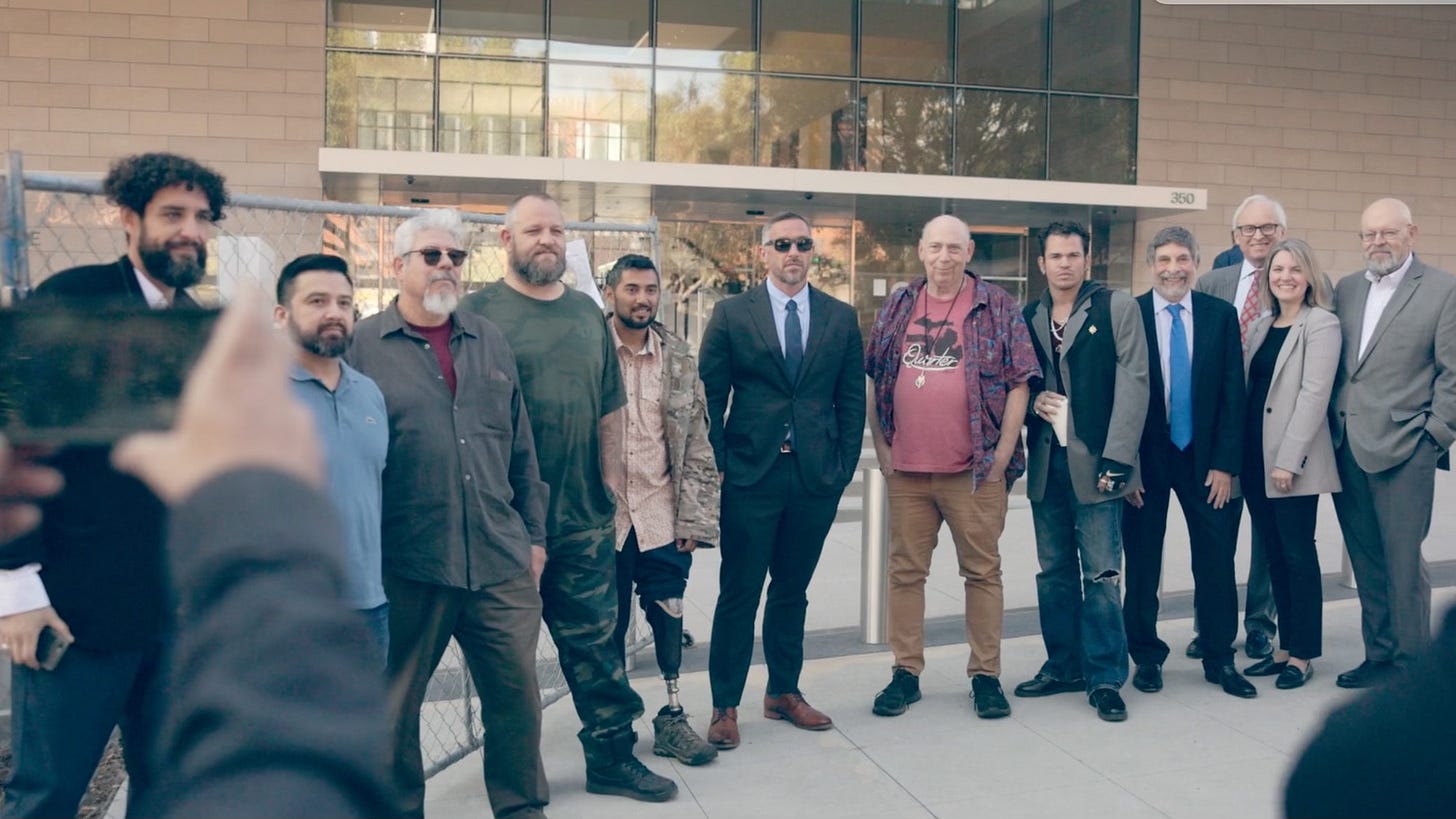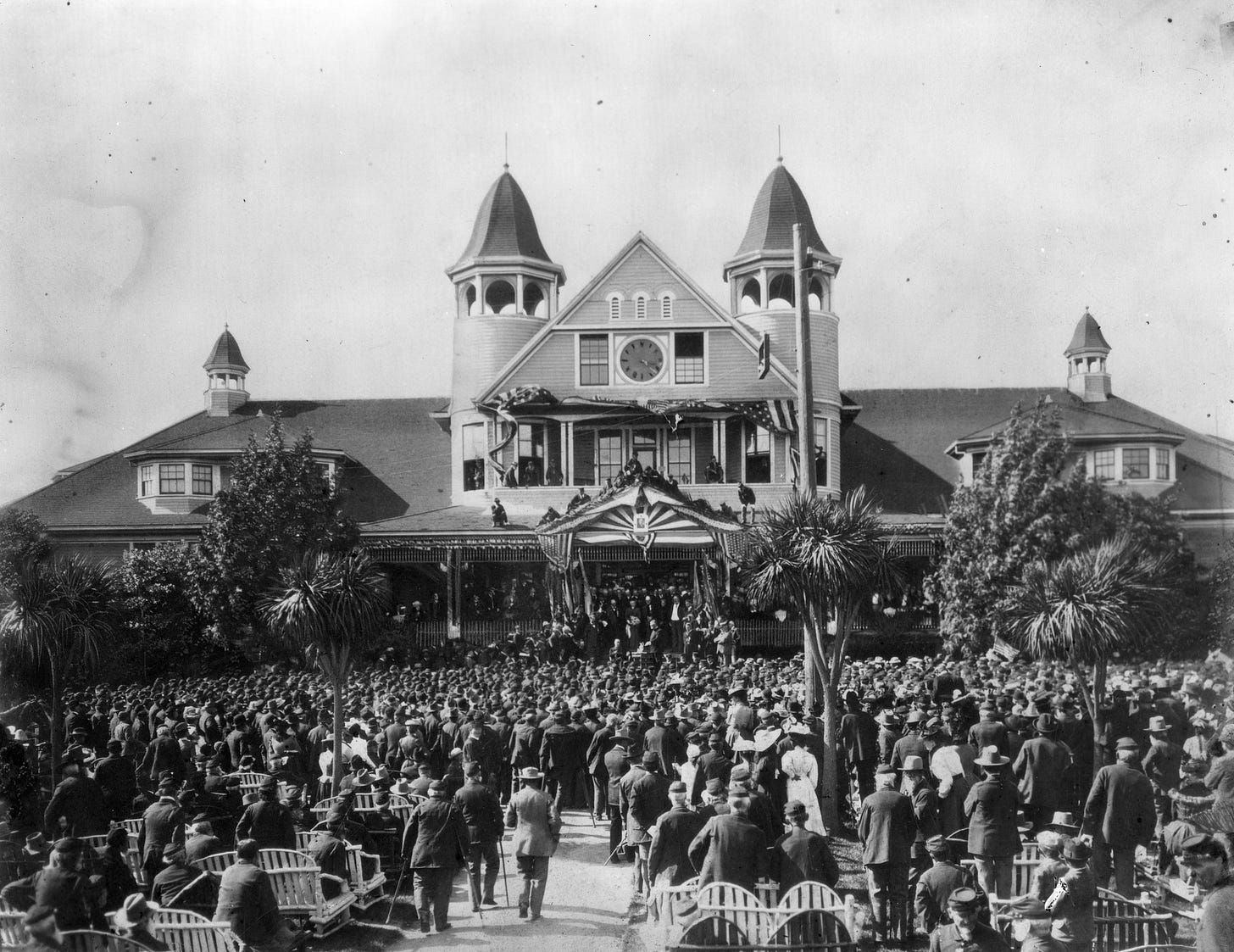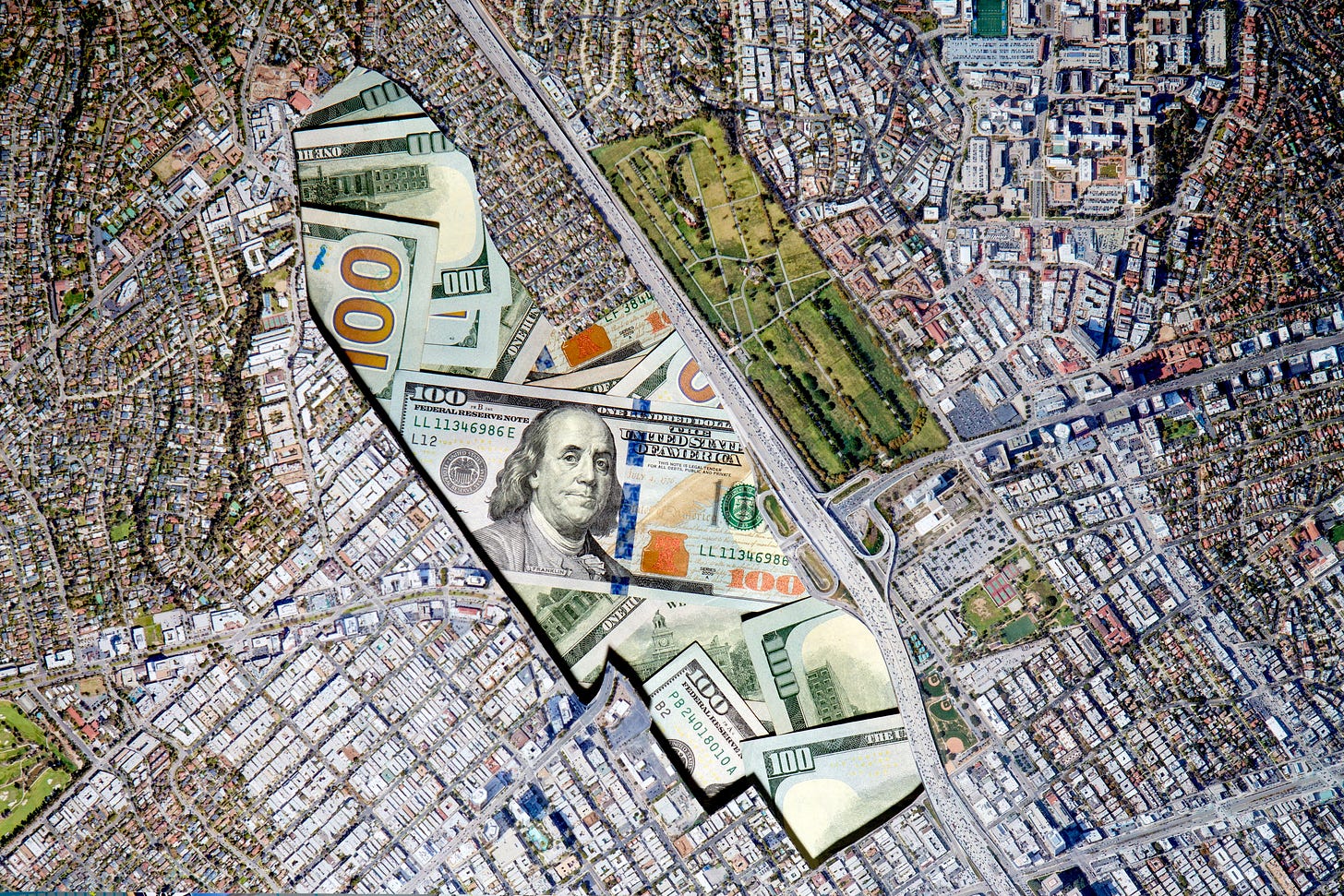"Broken promises": Vets reply to the VA's attempt to overturn a landmark lawsuit
Gearing up for the VA's appeal of 'Powers v. McDonough,' veterans say the government's failure to house homeless veterans has lethal consequences.

A group of unhoused veterans suing the federal government in a class-action lawsuit is urging a federal appeals panel to uphold a court order that would double residential development on the West Los Angeles VA campus.
In their reply brief filed February 18 for the government’s appeal to Powers v. McDonough, the veterans argue that the VA ignores irreparable harm to vets living on the streets, where they struggle to access medical care for brain injuries, post-traumatic stress, and severe mental challenges.
The VA is appealing federal Judge David O. Carter’s ruling to expedite development of 750 units of temporary housing and 1,800 additional permanent supportive units on the sweeping West LA VA campus, a 388-acre parcel that was donated to the federal government in 1888 specifically to be used as a home for disabled soldiers and housed thousands before the VA evicted them from the land in the 1970s.
This is the second legal action against the VA over this issue; the first resulted in a 2015 settlement in which the government agreed to construct 1,200 permanent supportive homes on the campus. To date, it has built just over 300. Meanwhile, nearly 3,000 greater Los Angeles veterans were homeless before the recent LA urban firestorms. Advocacy groups expect the numbers of unhoused veterans will rise significantly due to the fires.
The rise and fall of the Soldiers Home

One month before President Abraham Lincoln’s assassination in 1865, he signed legislation establishing the National Asylum (later Home) for Disabled Volunteer Soldiers — a predecessor of today’s VA. In 1888, a trio of local industrialists donated hundreds of acres of undeveloped Los Angeles real estate to the U.S. government specifically to house disabled soldiers near the Pacific Ocean. In 1901, President William McKinley formally dedicated that branch of the Soldiers Home — now the West LA VA — with these words:
“The government for which you fought, to which you gave the best years of your lives — that government will see to it that in your declining years you shall not suffer, but shall be surrounded with all the comforts and all the blessings which a grateful nation can provide.”
What happened to that land and why did vets stop living on it? Learn more by reading Part Two of Home of the Brave.
“Nowhere in its brief does the Government recognize — much less address — the stakes or the urgency of the homelessness crisis among disabled veterans in Los Angeles,” the veterans’ response brief states. “As the record demonstrates, homelessness is lethal and, for those who survive, has devastating repercussions, including exacerbation of existing health conditions and exposure to violence and other victimization.”
The veterans’ brief also contends that the VA never asked Congress for money for housing, and only included West LA VA construction in its budgetary planning after the current lawsuit was filed in 2024. For the construction of housing prior to the settlement, the VA relied on private developers, whose financing excluded veterans with the most critical medical needs because their disability payments pushed them over income limits, the veterans’ court filing says. The veterans also point to a 2021 inspector general report finding that at the current rate, the VA would not complete the initially promised 1,200 units until 2038.
They accuse the VA of maintaining illegal land leases because they fear being sued by wealthy and powerful leaseholders, which was admitted to in last year’s trial. “Left to its own devices, VA has subordinated the needs of unhoused veterans to the interests of third parties,” the veterans’ response argues.
How disability payments restrict homeless vets from getting housing
In this clip from "The Promised Land," a Long Lead documentary by Rebecca Murga, veterans describe how more severely disabled veterans are excluded from housing on the West LA VA campus.
Judge Carter’s ruling struck down VA agreements with Bridgeland Resources, which drills for oil on the veteran property; UCLA, which leases 10 acres for its Jackie Robinson baseball stadium; and the Brentwood School, which operates state-of-the-art athletic facilities for its students on the land.
Through the appeal, the VA, which said it could not comment on pending litigation, seeks to restore its authority to renegotiate the leases. UCLA did not respond directly to inquiries, but in its court filing also filed February 18 says its overall involvement on the VA campus, which includes medical care and research on veteran issues, more than compensates for its lease.
Veterans say the university is paid separately for the health care. The veterans also point out the VA quietly amended the university’s 2016 lease to build a baseball practice field during the COVID-19 pandemic, a revelation that drew Judge Carter’s ire during the initial trial.
The veterans also accuse the Brentwood School of reneging on a deal overseen by Carter to make veterans the predominant users of its athletic facilities, including an aquatic center, track, weight room, football, baseball, soccer, and other ball fields. Brentwood’s filings, also filed February 18, do not mention the settlement, but argue to reinstate its lease. The school did not return a request for comment.
Carving up the map
After prohibiting veterans from living permanently on land donated to house them, the VA entangled itself in a wild array of leases on the valuable Los Angeles property — from soccer pitches to parrot sanctuaries — inhibiting the government from solving a homeless crisis of its own creation.
If the VA isn’t housing veterans on this land, what is the property being used for? Learn more by reading Part Four of Home of the Brave.
The VA claims “irreparable harm” if it is forced to pay the veterans’ “exorbitant” demands for additional housing, which the agency says would upend its own program to end veteran homelessness.
The veterans counter, saying the VA failed to provide a cost estimate for permanent housing units because, the agency claimed, there was no room on campus to build them. That prompted Carter to briefly lock UCLA out of the stadium while it planned modular housing on the adjacent parking lot — plans that were aborted when the VA filed suit, veterans contend.
In its brief, the VA says the additional housing would drain resources from its own efforts to end veteran homelessness, limit veterans’ housing choices to a single location, and create a dangerous campus environment.
The veterans counter that the $100 million price tag for temporary housing represents an “infinitesimal” fraction of the VA’s $407 billion 2024 budget. The danger for veterans lies in the homeless encampments on the streets, not in the temporary housing on the VA campus, they argue.
Get the whole story: An epic government scandal hiding in plain sight
Home of the Brave is an award-winning, multimedia feature documenting the unhoused veteran crisis at the West LA VA campus, a 388-acre property deeded to the U.S. government in 1888 specifically to house disabled soldiers. Over the last 50 years, the land was carved up and leased to private interests, while development for veteran housing has been painfully slow. A land grab dating back to the U.S. Civil War, the history of this land is a story bursting with government malfeasance, neglect, graft, and even death.
This newsletter reports on how veterans are fighting to reclaim the land through Powers v. McDonough, a class-action lawsuit filed against the Department of Veterans Affairs. Get updates on the case here:
The veterans accuse the VA of violating the 1973 Rehabilitation Act, which prohibits discrimination against disabled people, as well as its fiduciary duty under the 1888 deed to build housing for disabled soldiers. The VA says any discrimination claims have to go through its administrative benefits system, and deny any housing obligation under the deed.
“It’s been 50 years since veterans were evicted [from the West Los Angeles campus] after the Vietnam War,” says veteran and advocate Rob Reynolds. “Broken promises, that’s been the issue all along.”
Last week, four top-ranking U.S. military retirees, including the admiral who led the raid on Osama bin Laden, filed a brief in support of the veterans’ suit, calling the VA’s neglect of veterans “a direct threat to national security.”
Other groups weighing in on the plaintiffs’ behalf include Amvets California; the Vietnam Veterans of America California chapter; Vets Advocacy, a board statutorily appointed to oversee housing plans on the West LA campus; the Military Order of the Purple Heart; and a group of constitutional legal scholars including the ACLU and UC Berkeley law professor Erwin Chemerinsky.
A hearing is set April 8 in Pasadena, California on the VA appeal, although the court noted it could be cancelled if the judicial panel decides to rule on written briefings only.







